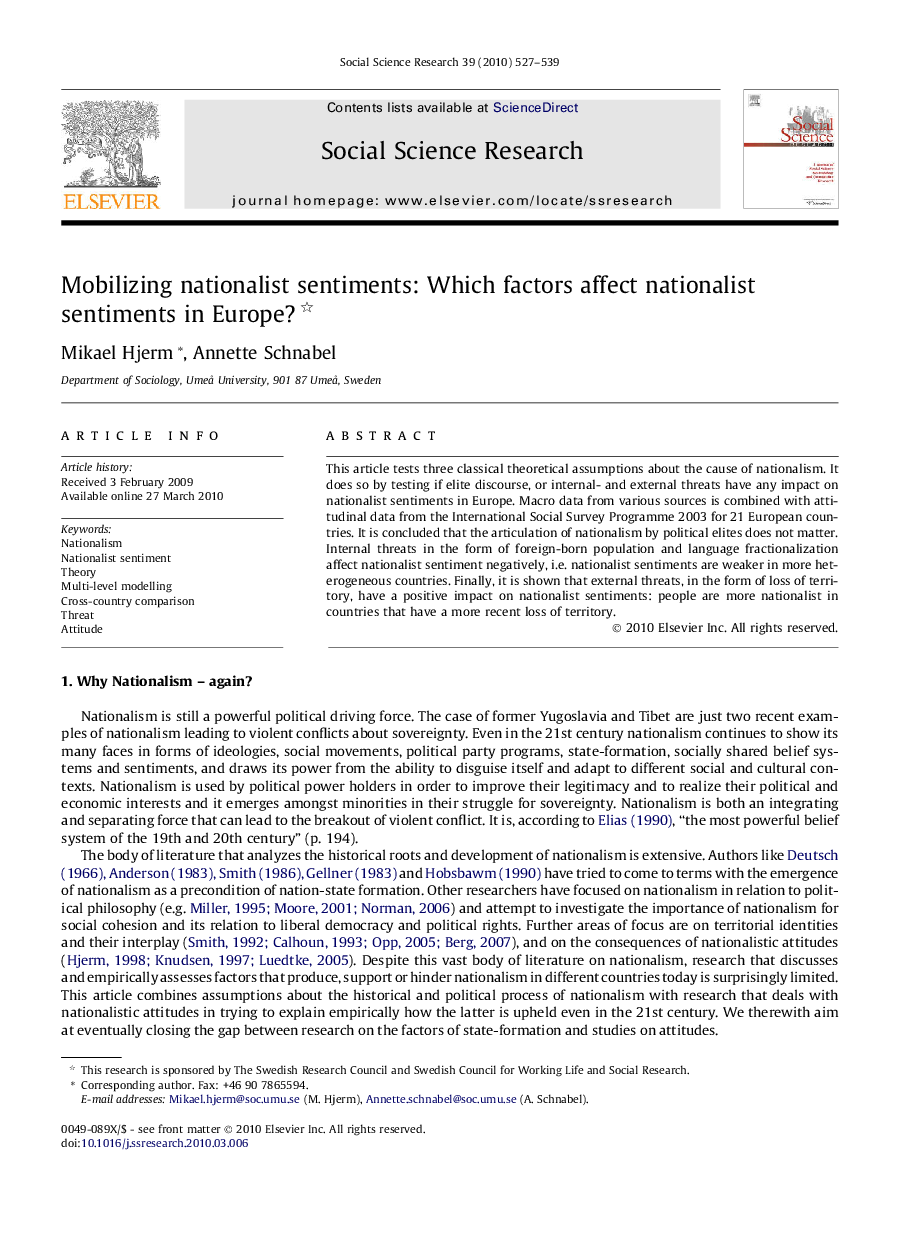| Article ID | Journal | Published Year | Pages | File Type |
|---|---|---|---|---|
| 956259 | Social Science Research | 2010 | 13 Pages |
This article tests three classical theoretical assumptions about the cause of nationalism. It does so by testing if elite discourse, or internal- and external threats have any impact on nationalist sentiments in Europe. Macro data from various sources is combined with attitudinal data from the International Social Survey Programme 2003 for 21 European countries. It is concluded that the articulation of nationalism by political elites does not matter. Internal threats in the form of foreign-born population and language fractionalization affect nationalist sentiment negatively, i.e. nationalist sentiments are weaker in more heterogeneous countries. Finally, it is shown that external threats, in the form of loss of territory, have a positive impact on nationalist sentiments: people are more nationalist in countries that have a more recent loss of territory.
